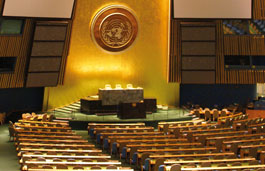Search
Politics BA (Hons)
Study level: Undergraduate
Interested in how countries are governed and decisions are made? A degree in politics can help you to refine your power of judgment and your critical thinking.
Year of entry
Location
Coventry University (Coventry)
Study mode
Full-time
Part-time
Sandwich
Duration
3 years full-time
4 years sandwich
Condensed first year available
Flexible part-time
Course code
L200
Start date
September 2025
Course overview
The vibrant and modern Politics BA (Hons) course at Coventry University addresses current political questions to help you understand the complex world we live in.
- Politics is a broad discipline, concerned with governance, power, authority, citizenship and conflict resolution. This course covers political concepts around these issues and more, comparing your own government, its policies and decisions, with those of others around the world.
- Politics should appeal to you if you have an interest in power, government, policy-making, social movements or debating ideas. Politics also concerns wars and conflict resolution, the impact of globalisation and world events. This course includes a range of modules on British, American, European, Chinese and Middle Eastern politics.
- Being able to practically apply your learning is a vital aspect of the course. There are opportunities and modules throughout the course dedicated to developing your professional career.
The January start for this course is condensed in the first year. Please see the ‘How you’ll learn’ section below for more details.
Rated Gold Overall
Teaching Excellence Framework (TEF) 20235 QS Stars for Teaching and Facilities
QS Stars University RatingsTop 5 Student City in England (Coventry)
QS Best Student Cities Index 2025Why you should study this course
- An exciting and modern course that aims to sharpen your analytical skills and engage with political questions that are of vital concern for today’s world.
- On successful completion of this course, you could pursue a range of careers in the public, private and voluntary sectors in areas like the civil service, local government, the media, education, management, publishing, development and international organisations.
- Assessments range across styles including essays, presentations, book reviews, reports and blog posts. There are no formal written exams.
- A vibrant and internationalised learning environment, in which students may have the opportunity to go on field trips and spend an additional year abroad or on a work placement in the UK2.
- Taught by a friendly and skilled teaching team, many of whom are respected authors and expert media commentators. (Staff are subject to change).
If you choose to start this course in January, you will study exactly the same course but over a slightly shorter timescale in the first year. This is ideal if you missed the September start, want to transfer from a different university or course or just need a bit more time to prepare for life at university.
What you'll study
This course has a common first year.
The common first year enables you to work alongside students doing similar courses to you, to widen your knowledge and exposure to other subject areas and professions. You will have the opportunity to collaborate with other students, so you can share your insights and experience which will help you to develop and learn.
If you discover an interest in a specific subject you have studied, upon successful completion of your first year, you could swap degrees with another course in your common first year (subject to meeting progression requirements).
Common first year courses
- History BA (Hons)
- History and Politics BA (Hons)
- International Relations BA (Hons)
- Politics BA (Hons)
- Politics and International Relations BA (Hons)
We regularly review our course content, to make it relevant and current for the benefit of our students. For these reasons, course modules may be updated.
How you'll learn
If you choose to start this course in January it will be run as a condensed programme. You’ll start your course in January and finish your first year in August. Upon successful completion of your first year, you will progress onto your second year in September and then continue to start subsequent years of your course in September, completing your degree at the same time as the September starters unless you opt to do a placement year.
Teaching contact hours
As a full-time undergraduate student, you will study modules totalling 120 credits each academic year. A typical 20 credit module requires a total of 200 hours study. This is made up of teaching contact hours, guided and independent study.
Teaching hours:
Teaching hours vary each semester, year of study and due to module selection. During your first year you can expect 15-18 teaching hours each week. You will also have the option to attend optional sessions including time with a progress coach or to meet with staff for advice and feedback. As you progress through your studies, teaching hours may reduce.
Guided and independent study:
Throughout your studies, you will be expected to spend time in guided and independent study to make up the required study hours per module. You’ll be digging deeper into topics, review what you’ve learnt and complete assignments. This can be completed around your personal commitments. As you progress through your studies, you’ll spend more time in independent study.
Online learning:
As an innovative university, we use different teaching methods including online tools and emerging technologies. So, some of your teaching hours and assessments may be delivered online.
Part-time study:
This course can be offered on a part-time basis. Whilst we would like to give you all the information about our part-time offering here, it is tailored for each course each year depending on the number of part-time applicants. Therefore, the part-time teaching arrangements vary. Request further information about part-time study.
Assessment
This course will be assessed using a variety of methods which will vary depending upon the module.
The assessment methods may include:
- essays
- group work
- presentations
- reports
- projects
- coursework
- individual assignments.
The Coventry University Group assessment strategy ensures that our courses are fairly assessed and allows us to monitor student progression towards achieving the intended learning outcomes.
International experience opportunities
You may have the opportunity to take part in an overseas study trip, or a full year abroad2.
If you do not speak a foreign language, we can arrange a study year at an institution where courses are taught in English. In the past, students on the course have spent time at the anti-mafia organisations Addio Pizzo and Libera in Sicily. Please note that all international experience opportunities may be subject to additional costs, competitive application, availability, and meeting applicable visa and travel requirements, and are therefore not guaranteed2.
Entry requirements
Typical entry requirements:
Fees and funding
| Student | Full-time | Part-time |
|---|---|---|
| UK, Ireland*, Channel Islands or Isle of Man | £9,535 per year | Request fee information |
| EU | £9,535 per year with EU Support Bursary** £16,800 per year without EU Support Bursary** |
Not available |
| International | £16,800 per year | Not available |
If you choose to study this course with a professional placement2 or study abroad year, you will need to pay a tuition fee3 to cover your academic support throughout your placement year. Students commencing their professional placement in the academic year 2027/28 will pay £1,500 if they are paying UK fees, or £1,800 if they are paying international fees.
For advice and guidance on tuition fees and student loans visit our Undergraduate Finance page and see The University’s Tuition Fee and Refund Terms and Conditions.
The University will charge the tuition fees that are stated in the above table for the first Academic Year of study. The University will review tuition fees each year. For UK (home) students, if Parliament permits an increase in tuition fees, the university may increase fees for each subsequent year of study in line with any such changes. Note that any increase is expected to be in line with inflation.
If you choose to study this course with a professional placement, the University will charge the tuition fees stated above for those on a placement during Academic Year 2027/28. The University will review professional placement tuition fees each year. For UK (home) students, the University may increase fees for each subsequent year of study, but such that it will be no more than 5% above inflation.
For international students, we may increase fees each year, but such increases will be no more than 5% above inflation. If you defer your course start date or have to extend your studies beyond the normal duration of the course (e.g. to repeat a year or resit examinations) the University reserves the right to charge you fees at a higher rate and/or in accordance with any legislative changes during the additional period of study.
We offer a range of International scholarships to students all over the world. For more information, visit our International Scholarships page.
Tuition fees cover the cost of your teaching, assessments, facilities and support services. There may be additional costs not covered by this fee such as accommodation and living costs, recommended reading books, stationery, printing and re-assessments should you need them. Find out what's included in your tuition costs.
The following are additional costs not included in the tuition fees:
- Any optional overseas field trips or visits: £400+ per trip.
- Any costs associated with securing, attending or completing a placement (whether in the UK or abroad).
Condensed course – January start date
If you choose to start this course in January please make sure you check the Fees and Finance page for more information. Although starting this course in January does not prohibit you from being eligible for student finance, the way it is paid in your first year differs from those who start their course in September.
If you start the course in January, your tuition fees will be paid in accordance with the university’s Tuition Fees, Refund and Withdrawal Terms and Conditions for January starters and for any further years of study, your fees will be paid in accordance with the terms for September starters.
*Irish student fees
The rights of Irish residents to study in the UK are preserved under the Common Travel Area arrangement. If you are an Irish student and meet the residency criteria, you can study in England, pay the same level of tuition fees as English students and utilise the Tuition Fee Loan.
**EU Support Bursary
Following the UK's exit from the European Union, we are offering financial support to all eligible EU students who wish to study an undergraduate or a postgraduate degree with us full-time. This bursary will be used to offset the cost of your tuition fees to bring them in line with that of UK students. Students studying a degree with a foundation year with us are not eligible for the bursary.
Facilities
Students will benefit from studying on our well-equipped, modern campus 4.

George Eliot Building
Named after one of the leading writers of the Victorian age, the George Eliot building is the city-centre home of politics and international relations studies at Coventry University. Mingle with like-minded students, cross the Edible Garden campus to relax at the Hub, or take the few minutes walk to immerse yourself in books at the Lanchester library.

The Library
You will benefit from our personalised support and industry-relevant teaching and resources, which are designed to help you succeed. These include our modern library with academic-liaison librarians who provide specialist help and support throughout your degree.

Academic support
No matter which degree you’re studying, you’ll find a lot of support on campus, including the Centre of Academic Writing and sigma, which offers mathematics and statistics support.
Facilities are subject to availability. Access to some facilities (including some teaching and learning spaces) may vary from those advertised and/or may have reduced availability or restrictions where the university is following public authority guidance, decisions or orders.
Careers and opportunities
On successful completion of this course, you should be able to:
- demonstrate advanced knowledge of influential ideas, ideologies, concepts, and theories used in the study of politics
- demonstrate a critical understanding of institutions, processes and policies utilised in contemporary government.
- demonstrate advanced awareness of the origins and character of the contemporary international system and the nature of world politics
- identify and critically engage with differing approaches to, and key issues of debate within, the study of politics
- critically assess, analyse and synthesize evidence collected through research from a range of diverse UK and non-UK sources
- conduct independent research using primary and secondary sources relevant to the topic under study
- work independently and in groups with increasing self-confidence and reflect upon the process of learning
- demonstrate advanced communication skills, both written and oral, that can be transferred to a wide variety of professional contexts.
The course enables you to choose from a variety of different career pathways that meet your particular interests.
Coventry University is committed to preparing you for your future career and aims to give you a competitive edge in the graduate job market. The university's dedicated careers and employability support provides a wide range of support services to help you plan and prepare for your career.
Where our graduates work
Some of our previous students have secured graduate-level jobs in the civil service, international organisations, local government, the media, private sector companies, the culture industry, further and higher education teaching and non-government organisations (NGOs).
Further study
You can choose to continue your studies at Coventry University with the International Relations MA, History MA and Politics MA. You may be entitled to an alumni discount on your fees if you decide to extend your time with us by progressing from undergraduate to postgraduate study.

Discover Phoenix+
Phoenix+ brings you together with other students to learn, experience and develop essential knowledge and skills. Whatever destination you choose, it's about preparing you for life after university.
Learn more about Phoenix+How to apply
You may also like

Politics and International Relations BA (Hons)

History and Politics BA (Hons)






